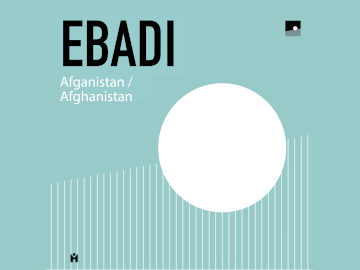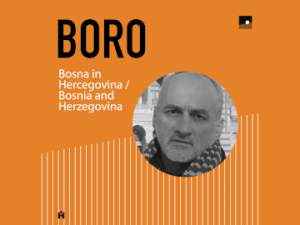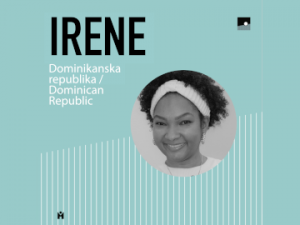Living Peace 21: Letters of Wars and Peace
11. 6. 2025 | Politics

 At the end of 2022, we at the Peace Institute, started organizing a series of public events entitled Thinking Peace as a response to the multitude of armed conflicts around the world. Since the world has been spiralling into dangerous global militarization, we wanted to rethink what is war, what is peace, and more importantly how to ensure a stable peace which would not be quickly engulfed in new conflicts and wars.
At the end of 2022, we at the Peace Institute, started organizing a series of public events entitled Thinking Peace as a response to the multitude of armed conflicts around the world. Since the world has been spiralling into dangerous global militarization, we wanted to rethink what is war, what is peace, and more importantly how to ensure a stable peace which would not be quickly engulfed in new conflicts and wars.
We want to expand on the Thinking Peace cycle and add new dimensions to imagining peace. With the help of amazing individuals worldwide, we are beginning a new series of public letters written by people whose lives were interrupted by war or who found themselves in a recent armed conflict. We have titled this series of letters as Living Peace to emphasize how important peace is and that people often only realize this importance when facing the brutality of war. We want to illustrate how people from Palestine, Ukraine, Rwanda, Bosnia and Herzegovina, Croatia, Serbia, Syria, Sudan, Afghanistan, Congo, Yemen and elsewhere think publicly about peace. How do the inhabitants of these regions face wars and military conflicts? What lessons can we learn from their intimate experiences and existential fears?
While opinions of world leaders who justify or even defend wars, dominate today’s media spheres, we want to amplify the voices that defend peace, reject violence and recognize equal rights for all. Having experienced war, they understand why it is essential to live in peace.
The 21st letter we are publishing was written by Ebadi from Afghanistan:
The first step toward peace is understanding its true meaning. Peace must begin in our homes and within ourselves.
Letter by Ebadi from Afghanistan:
I live in a country that has witnessed decades of war—Afghanistan. This is a nation whose people have endured conflict for years. Life in a war-torn country is incomplete; people breathe, but they do not truly live. Each day, they experience anxiety, stress, fear, and hopelessness. With no optimism for the future, many consider leaving the country in search of safety and peace.
Not only is external peace absent, but internal peace has also been shattered. This ongoing turmoil inflicts both physical and psychological harm, leaving people unable to carry out daily activities and draining their morale. War brings severe poverty, and due to economic collapse, people cannot meet even their basic needs.
Those who experience war firsthand suffer profound impacts on their daily lives, such as displacement. Many Afghans have become refugees and faced numerous hardships. They were forced to abandon their homes and homeland. In pursuit of safety, some resorted to illegal migration routes, which tragically cost many their lives. The world has witnessed these deadly journeys, such as those in the Greek Sea and along the Iranian border. While many judged them for risking everything to reach Europe, they failed to understand how unbearable life in a war-torn country can be. These people had no choice—no one willingly leaves their homeland unless absolutely necessary. Living in such conditions leads to mental disorders, extreme stress, fear, and trauma.
War has also had a devastating effect on children and youth. Many children are unable to continue their education. For example, under the previous Afghan government, insecurity in some regions prevented families from sending their children to school or university. Some areas have remained completely underdeveloped due to ongoing conflict. People in these regions live in ignorance and do not understand the value of education. Girls are married off at a very young age—when they should be playing and enjoying life, they are instead forced into adulthood, often suffering both physically and mentally.
Due to extreme poverty, some families are compelled to sell their children because they cannot afford to support them. Under the current government, girls and women are completely banned from studying or working, which causes severe mental distress and hopelessness for their future.
According to the Council on Foreign Relations, Afghanistan’s decades-long conflict involves internal power struggles, foreign interventions, and numerous other challenges. Ethnic divisions, political factions, and insurgent groups competing for control have all contributed to the country’s instability.
Resolving the Afghan conflict requires sustained international support, local solutions, and efforts to address its root causes. The Afghan people seek protection of human rights and long for a government that is accountable to its citizens and embraces diverse perspectives. They need economic opportunities to reduce poverty and prevent forced migration. International aid and humanitarian support are essential to rebuilding the country.
The first step toward peace is understanding its true meaning. Peace must begin in our homes and within ourselves. We must let go of the past and look forward with hope. Let us work to build a better future—one based on mutual respect, unity, and acceptance of all cultures and values. We must eliminate ethnic discrimination so that future generations do not inherit division and hatred. Ethnicity and discrimination are major roots of conflict and war. By addressing poverty, inequality, limited access to resources, and systemic discrimination, we can create the foundation for lasting peace.
The prerequisites for peace include preventing conflict escalation, promoting peaceful conflict resolution, fostering understanding and respect, strengthening institutions, addressing past trauma, supporting reconciliation, encouraging global cooperation, investing in education and awareness, and ensuring internal unity and coordination.
– Prof. Ebadi




